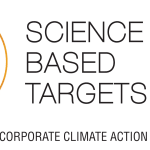
The validation of Kraiburg TPE’s climate protection targets in March 2024 marks another milestone for the issues of sustainability and climate protection in the company. The announced targets have been validated by the Science Based Targets initiative (SBTi) and are therefore subject to globally valid, scientifically based, measurable and verifiable standards.
Kraiburg TPE already met the requirement for participating in the initiative on May 30, 2023, by signing the “SBTi Commitment Letter.” Signing the commitment letter is accompanied by a corresponding entry on the SBTi website. From the time of signing, the listed companies are subject to a 24-month deadline to present their climate protection targets and measures with the required actual and target values and the associated time horizon.

The SBTi was founded in 2015 with the aim of providing enterprises with scientifically based support in reducing their CO2e emissions. The agreements enshrined in the Paris Climate Agreement provide the basis for defining specific targets and measures. The SBTi is a partnership between the Carbon Disclosure Project (CDP), United Nations Global Compact, World Resources Institute (WRI) and the World Wide Fund for Nature (WWF). Since its founding year, more than 7500 companies have joined the initiative. In 2021, the SBTi launched the world’s first Net-Zero Standard. It provides the framework for the targets with which the global temperature increase can be limited to 1.5 degrees and kept below 2 degrees Celsius in the coming years.
To meet the SBTi’s high requirements, Kraiburg TPE has set itself ambitious climate protection targets. Starting from the base year of 2021, the company’s scope 1 and scope 2 CO2e emissions are to be reduced by 46.2 percent by 2031. Scope 1 refers to all direct greenhouse gas emissions and scope 2 to those emitted through the consumption of secondary energy sources. Kraiburg TPE is working towards a reduction in scope 3 CO2e emissions (all indirect emissions that occur outside the energy sector) by 27.5 percent over the next seven years.
For Oliver Zintner, CEO at Kraiburg TPE, the validation of climate protection targets in accordance with the SBTi is an important part of the company’s sustainability strategy. Zintner says: - In our view, we will only be able to make an effective contribution to climate protection if this contribution is based on the fundamentals of scientific knowledge while relying on internationally valid, comparable standards that are comprehensible for everyone. As a company, we must act now and we are therefore working across all sites to achieve the targets of our 2031 climate program. We are convinced that we are making an important contribution in this way: for the preservation of an environment worth living in and thus for the well-being of future generations.

On the basis of the UN Sustainable Development Goals (and the UN Global Compact Principles), Kraiburg TPE has so far focused on five core topics in its sustainability strategy: water, climate protection and energy management, saving resources through the circular economy, as well as employees’ well-being. The company holds DIN EN ISO 14001 certifications at all its sites and, in addition, has been certified in accordance with DIN EN ISO 50001 at its headquarters in Waldkraiburg, Germany.
To achieve the targets validated by the SBTi by 2031, the 2031 climate program established by Kraiburg TPE aims to constantly optimize the energy efficiency of all production sites and focus even more strongly than before on the use of renewable energy sources in the coming years. In addition, this specialist for thermoplastic elastomers is closely cooperating with its customers and suppliers to constantly increase the proportion of recycled and bio-based raw materials used in order to meet the ambitious SBTi criteria, especially in the scope 3 area.



